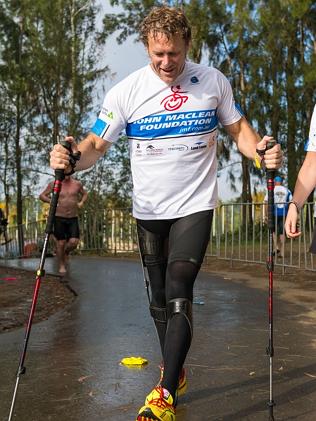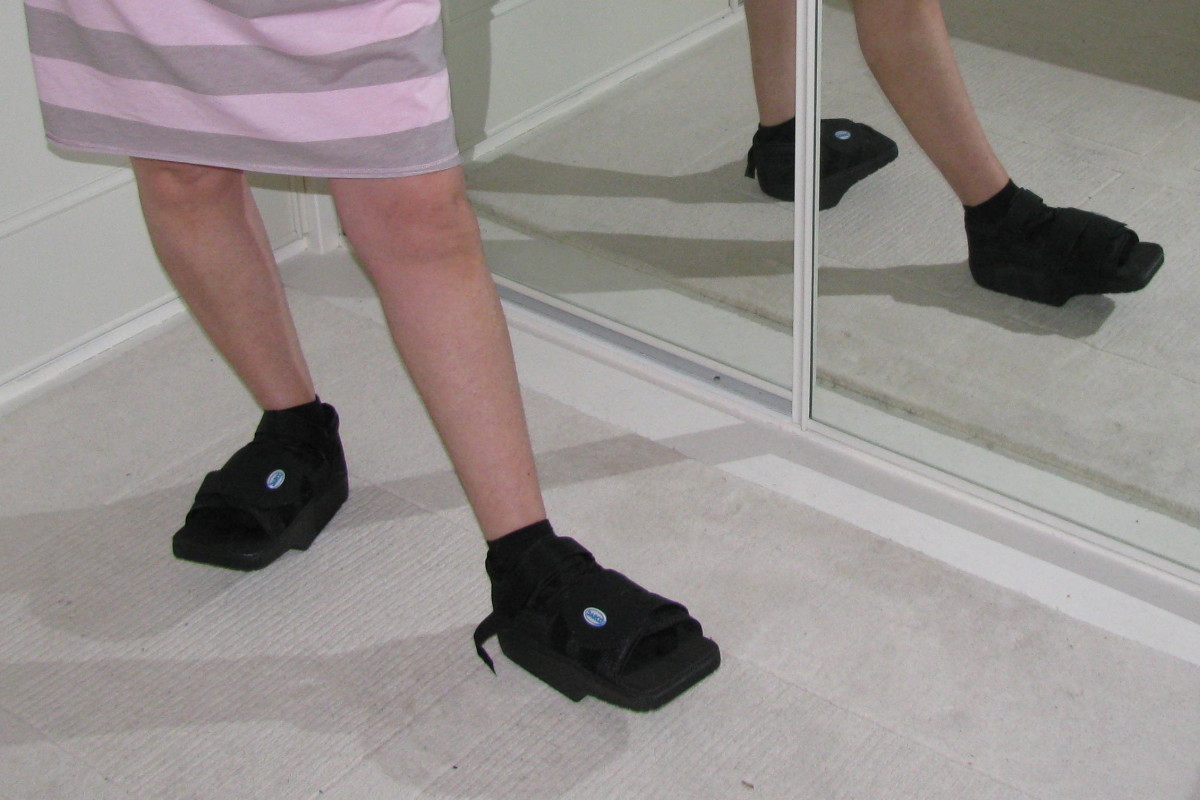Should you trust a medical prediction about your own health?
Old age pregnancy and severe spinal cord injury
The medical establishment uses complex apparatus, methods and techniques to predict the outcome of a procedure, be it surgery or other treatment. It is called prognosis and many people live fulfilling lives well beyond the prognosis, especially those who are told they will never walk again, see again, hear again.How can a medical prognosis be so wrong, despite all the scientific evidence backing it up? How can pregnant women, at risk of complicated pregnancies, miscarriages, and foetal abnormalities deliver health babies? How people who have their nervous system damaged be deemed to a life in the wheelchair start to walk again? Eighteen years ago, in 1996, after a frustrated marriage ending, an ordinary woman, professional, living in a middle class suburb, started feeling incredibly unwell, nausea, vomiting, extreme tiredness, and some depression. Visiting a doctor, he commented that she appeared to have good coping skills and said he thought medication wasn’t required. He also recommended a pregnancy test, just in case. It was positive and she kept it a secret for a while.
Defeating bad prognosis in pregnancy
Having just turned 35, she was going to be an older mother and extra care would be necessary if she chose to carry on with the pregnancy, the doctor said. Risks of Down syndrome were 1 in 1,000 births and risk of foetal development problems high, because of her age, he also said. She spent the rest of the pregnancy worrying about the baby’s wellbeing, hoping she would survive the birth and that there would be no permanent damage to her body due to her condition as an ‘older mother’. Her baby boy was born healthy and tests revealed no abnormalities.
Eight years later, this woman was pregnant again. This time, irregular light bleeding led her new doctor to a similar talk: older mother, 43, she should call herself lucky if she carried that pregnancy to term. Interestingly, regular blood and urine tests proved she was in perfect health, with the baby growing normally. She thought of ignoring the medical profession and taking care of the pregnancy her own way: lots of rest, good diet, keeping stress at bay. However, she still took the regular care and monitoring offered here in New Zealand. “I would not forgive myself if anything went wrong after refusing free healthcare’. A great midwife, funded by the Ministry of Health to support her during her pregnancy, shared the views that age is a state of mind and said her sister, 45, had just had a baby boy, healthy and cute. A baby girl was born at the expected date, normal, no anomalies revealed in any tests.
I don’t know what criteria were used to call the woman ‘an older mother,’ even though I had read in many scientific journals that complications during pregnancy tend to increase with age. A decade later, she shared these stories with an elderly woman, who had her first baby at 30 and the doctors recommended weekly visits, because she had become pregnant at an ‘advanced’ age.

Walking after a severe spinal cord injury
Wrong prognoses about pregnancy risks don’t seem a problem, apart from heightened anxiety about the woman’s own ability to carry the pregnancy to term and deliver a healthy baby. However, what happens when these prognoses dictate a lifestyle and crushes a person’s hope of recovery?
Spinal cord injuries seem to champion the prognoses “you will never walk again.” However, over and over we see people defeating these prognoses. Take the case of John Maclean, Paralympics athlete who was told he would never walk again. He left hospital after a car crash, with 25% function in his left leg, the right leg ‘was practically useless.’ Doctors said the wheelchair would be part of his life from then on. Twenty five years later, he walks and starts training for the able bodied duathlon. Some of the doctors who spoke on a 60 min TV show said it was a miracle.

Ian Waterman and Conan Jordaan walk again, as well
Ian Waterman challenged the medical establishment, which stated he would never walk again because of a virus that damaged his neural tube. Through sheer will power, according to the documentary, he managed to develop new neural pathways and walk again. The same happened to Conan Jordaan who suffered an accident in 1997 causing extensive damage to his spine. The doctor’s prognosis: "you will never walk again." However, his YouTube video “I will never walk again” shows him walking at the end of an 8 km track.
The man who lost his body

The reasons behind bad (or negative) prognosis
- Doctors make prognoses on based on scientific evidence, and probably at the time of the prognosis, women were considered old to deliver a baby at age 29, 35 and 43, respectively. It is possible that most women indeed had health problems at that age during that time. It is also possible that most people who damage their spine never walk again and this is based on statistics.
- Let’s assume that there are only two foreseeable outcomes for each case: complicated and normal pregnancy; recovery of leg movement and non-recovery of leg movement. Chances then are 50 percent for each possibility. If the doctor chooses to state that the pregnancy is likely to go well, despite the mother’s age and that the person who suffered spinal injury could walk again and this did not eventuate, how liable would the doctor be?
- Doctors are humans, first and foremost, and they can be negative, too. Negativity is part of being human; the more we defeat it, the more achievements we can claim. Besides, imagine the ethico-legal consequences of a doctor saying to a bleeding pregnant woman: ‘you will be just fine.’ Or see a doctor walking around a spinal injury ward saying: ‘trust yourself, full recovery is possible,” when the vast majority doesn’t recover.
Many more people could have a healthy pregnancy, as well as recover from spinal cord injury if doctors encouraged them, perhaps even by telling them that ‘miracles’ affordable to everyone; all they need is determination and good, healthy practices. However, doctors are obliged to adhere to the scientific method. Science states that serious spinal cord injuries cause limb function loss. It becomes a self-perpetuating negative prophecy. Success stories hardly ever appear in scientific journals and magazines; when they do, they are called ‘miracles,’ which are beyond the scope of science.

In summary....
These success stories show that people can neutralise the power of a bad or negative medical prognosis, by working hard to make 'miracles’ happen, which can be costly. But this often pays off in the long run. The pregnant woman chose to rest, eat healthy foods and keep stress away, when her friends lived on partying, when she had junk food ads jumping at her eyes. Being a middle class professional she could have also been under pressure to succeed in whatever she did. In the videos, the men show that they had to cope with extreme pain, with people’s apathy and disbelief, and the medical establishment dictating the opposite of what they wanted to achieve. By refusing to accept the bad or negative medical prognosis, by working hard towards a goal everyone thought impossible, except themselves, they performed ‘miracles’with their bodies and in their lives. The Internet has opened a universe where we can find lots of 'impossible achievements," and 'miracles'. Connecting with people who had similar experiences can be a very useful way to try and defeat negative or bad prognosis. Even though there may be no guarantees and no certainties, perhaps one day science will explain how people thrive despite all expectations on the contrary. .
References
The man who lost his body (Ian Waterman). https://www.youtube.com/watch?v=FKxyJfE831Q
I will never walk again (Conan Jordaan). https://www.youtube.com/watch?v=4eg47aAYZJ0
Medical miracle: Paralysed man walks after 25 years (John Maclean) https://www.youtube.com/watch?v=BRqks-EOh2w








